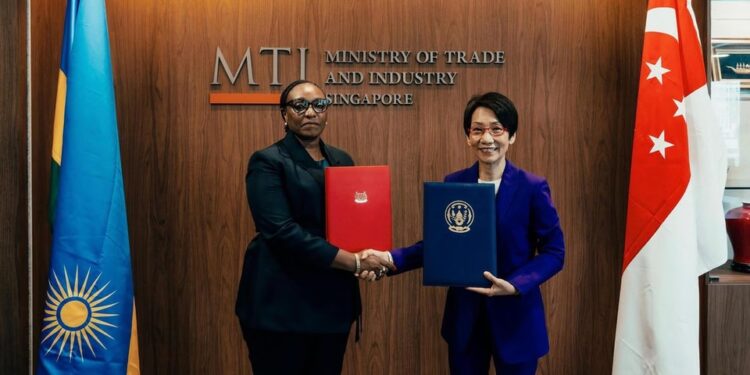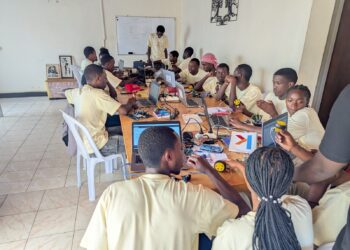Bilateral agreement enables cross-border trading of verified emissions reductions under Article 6, boosting Rwanda’s 2030 climate targets.
Rwanda has signed a carbon credit agreement with Singapore, becoming the sixth country to enter such a pact with the Southeast Asian city-state, as both nations seek to advance their climate commitments under the Paris Agreement.
The agreement, signed Tuesday in Singapore by Rwanda’s Minister of Environment Dr. Valentine Uwamariya and Singapore’s Minister for Sustainability and the Environment Grace Fu, enables the two countries to cooperate on carbon trading through emission reduction projects implemented in Rwanda.
“This agreement builds on Singapore and Rwanda’s strengthened cooperation in forward-looking areas such as the digital economy and fintech,” said Fu, who also oversees trade relations. “It deepens our partnership in climate action and sustainable development.”
Uwamariya said the pact will help Rwanda promote a high-integrity carbon market and deliver measurable emissions reductions.
“Through this agreement, we aim to promote high-integrity carbon markets, achieve tangible emissions reductions, and support sustainable development for our communities,” she said.
The bilateral deal falls under Article 6 of the Paris Agreement, which allows countries to collaborate on reducing global greenhouse gas emissions through the transfer of carbon credits, known as internationally transferred mitigation outcomes (ITMOs).
Singapore has also signed similar agreements with Ghana, Papua New Guinea, Peru, Bhutan and Chile. It aims to offset up to 2.5 million tonnes of emissions annually through 2030 using high-quality carbon credits to complement its national climate strategy.
Under Singapore’s carbon tax system, eligible companies can use such credits to offset up to 5% of their taxable emissions. To qualify, credits must come from projects in countries with formal Article 6 implementation agreements.
Experts say African countries like Ghana and Rwanda are ahead of many Southeast Asian nations in building the legal and institutional infrastructure needed for carbon markets.
“Fortunately for some of the African nations like Ghana, the Swiss and Singapore helped cultivate the capacity-building and legislation to build Article 6 policies,” said Alvin Lim, CEO of Climate Bridge International, a Singapore-based carbon project developer. “The ASEAN countries are only now, over the last two years, going through that same process.”
According to official figures, Ghana had earned more than $800 million from carbon credit sales to Switzerland and Sweden as of November 2024.
Rwanda launched its Carbon Market Framework during the 2023 UN Climate Change Conference (COP28) in Dubai, where it also signed cooperation agreements with Singapore and Kuwait on Article 6 implementation. The framework was developed by the Rwanda Environment Management Authority (REMA) with support from the United Nations Development Programme.
REMA Director General Juliet Kabera said the new structure ensures transparency, credibility, and environmental integrity for all carbon credits issued in Rwanda.
“The framework will ensure that every credit bought in Rwanda will be done in a way that is transparent, verified and meets the requirements of the international carbon market,” she said.
The framework outlines governance structures, technical procedures, and verification standards for carbon crediting. It aims to provide market confidence and reduce uncertainty for private sector participants.
Rwanda’s updated nationally determined contribution (NDC) under the Paris Agreement commits to reducing greenhouse gas emissions by 38% by 2030. The country has pledged to raise $11 billion to meet this goal, with $5.7 billion allocated for mitigation and $5.3 billion for climate adaptation across sectors such as agriculture, energy, transport, health, and forestry.
Of that total, Rwanda plans to mobilize $4.1 billion from domestic sources and seek $6.9 billion from international climate finance, including carbon markets and cooperative approaches under Article 6.
Kabera said carbon trading offers Rwanda an innovative way to attract investment while tackling climate change.
“This is a transformational opportunity for Rwanda,” she said. “By engaging in high-integrity carbon markets, we can unlock finance, support sustainable development, and achieve our climate goals.”











